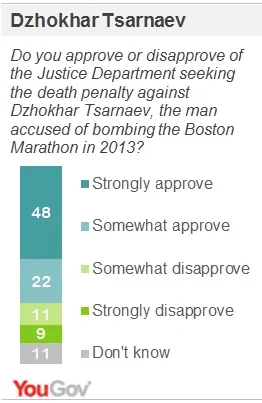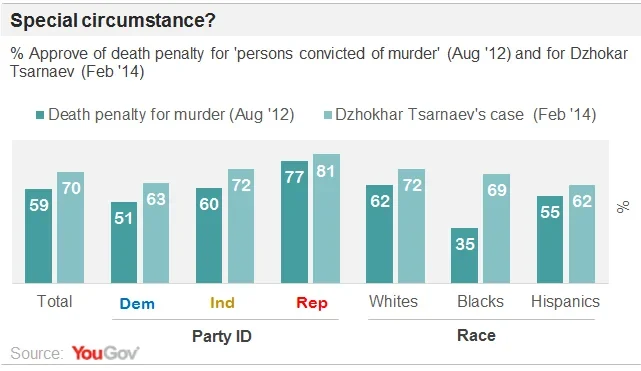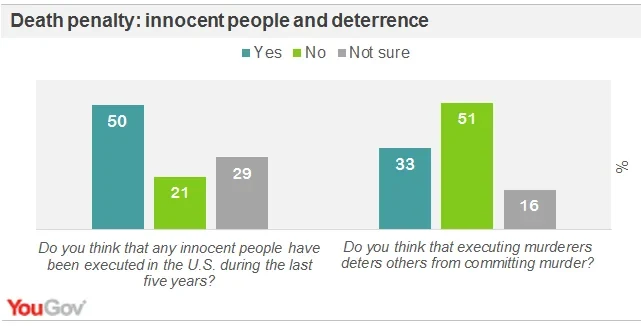
Seven in ten Americans approve of the Justice Department’s decision to ask for the death penalty in the trial of Dzhokhar Tsarnaev, who was arrested for last year’s Boston Marathon bombings.
Only one in five in the latest Economist/YouGov Poll oppose that decision.
Although the state of Massachusetts has abolished the death penalty, Tsarnaev has been charged with the federal crime of 'conspiring to use weapons of mass destruction against persons and property in US resulting in death,' which can carry the death penalty. Agreement with the Justice Department’s decision to seek the death penalty for this offense comes from all groups, even some who are traditionally opposed to the death penalty, suggesting how last April’s bombing affected the American public.
Support for the death penalty in this case is higher than support for the death penalty has been in previous polls. In some cases, those who have opposed the death penalty in previous polls accept this decision. For example, 69% of African-Americans approve of the decision to seek the death penalty for Tsarnaev. In August, 2012, just a third of blacks supported the death penalty for crimes like murder.

Similarly, Democrats overwhelmingly favor the Justice Department decision; only half supported the death penalty in general in 2012.
In fact, a general question about the death penalty in this poll, asked directly after the question about Tsarnaev, also found more support for the death penalty than typically. But those results may have been affected by question placement, as similar percentages favored the death penalty in general as accepted the Justice Department’s decision to seek the death penalty for Tsarnaev.
For many Americans, the death penalty continues to be problematic: half the public believes at least one innocent person has been executed in the United States in the last five years; half do not think the death penalty deters others from committing murder.

Opponents are more likely to believe these arguments against the death penalty, but many supporters believe them too. It is clear from this poll, however, that sometimes punishment can be more important than deterrence.
Image: Getty
Full results can be found here.
Economist/YouGov poll archives can be found here.








